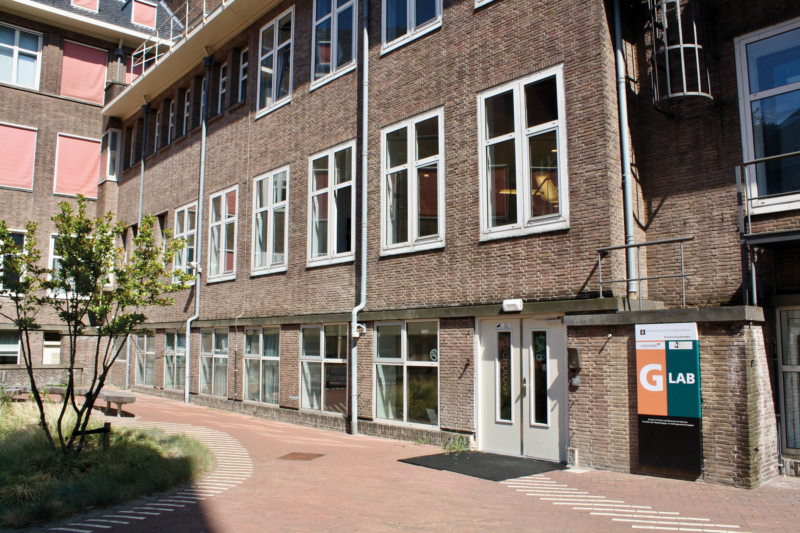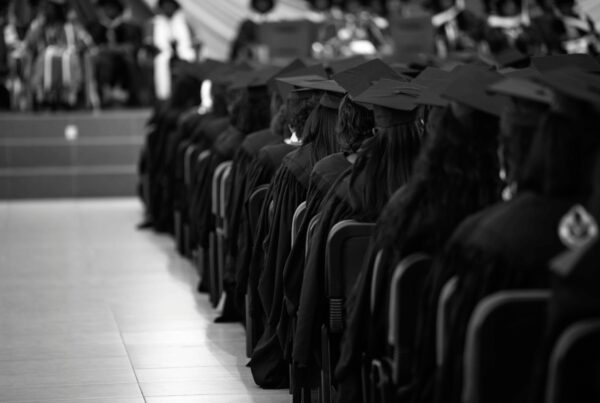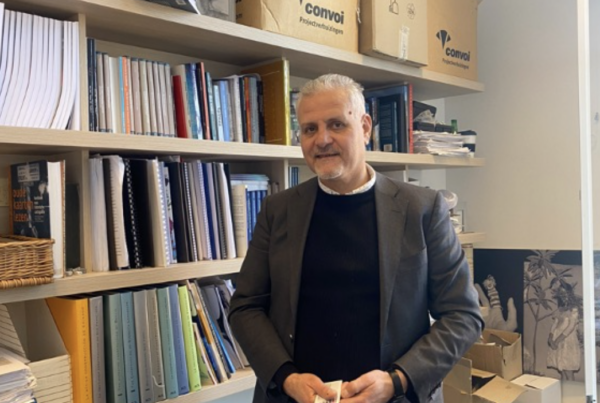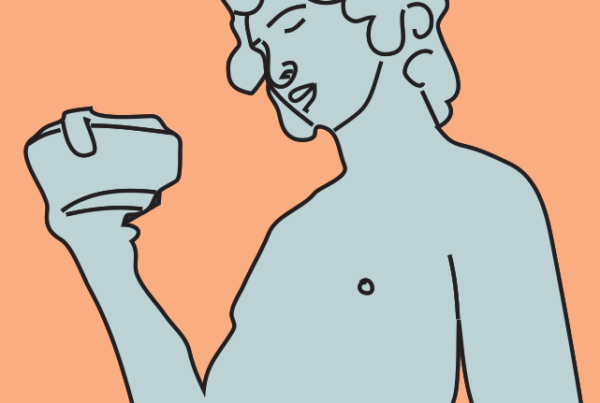

By the end of August, University of Amsterdam (UvA) and Vrije Universiteit (VU) confirmed that they will be collaborating with the multinational Chinese technology company Huawei. Together, the universities and the tech company will form a team of international researchers to develop artificial intelligence (AI) for Huawei’s search engines. Huawei will pay the universities 3.5 million euros for the collaboration, which will last for four years (Van Wijnen, 2020a).
Given the current international political climate surrounding China and Huawei, the collaboration is rather controversial in the Netherlands. Multiple Dutch politicians and safety experts have raised concerns about the universities working with Huawei (NOS, 2020). Politicians from parties CDA and VVD announced that they will be asking questions about the collaboration in parliament (Stil, 2020).
The main concern that many countries, including the Netherlands, have with Huawei, is that it’s suspected to conduct espionage for the Chinese government. Although there doesn’t seem to be any concrete proof, the suspicions are enough to act upon as can be seen with the US banning Huawei from selling their products and services in their country (Van Wijnen, 2020b). This ban is part of the larger China-US trade war the countries are waging (Shepardson & Freifeld, 2019). Other countries haven’t gone as far as the US, but many have still taken measures. The main focus in Europe seems to be on Huawei providing the new 5G networks. It is feared that Huawei is putting ‘backdoors’ in their products, hidden ‘mistakes’ in software which can be used to get around its security system. Huawei, or the Chinese government could use these ‘backdoors’ to steal data from people using the 5G networks or take control of devices connected to them (Vaswani, 2019). The fear of Huawei having access to these backdoors has led the UK to ban Huawei from building and participating in the 5G networks and other European countries to enforce stricter rules (Bowler, 2020), like restricting Huawei to only use a small percentage of the networks’ capacity (Stevis-Gridneff, 2020). Some countries are currently deciding whether it’s safe to allow Huawei on the 5G-market. With the Netherlands being one of these countries, the announcement of the collaboration between the Chinese company and the Dutch universities comes at an unfortunate timing: in the middle of a political debate (Van Wijnen, 2020b).
Of course, collaboration on research with a company that isn’t trusted by everyone, doesn’t necessarily mean the research itself will pose safety concerns. Frank Van Harmelen, project leader of the research and professor in AI at VU, replies to the safety concerns with the fact that the researchers will have full freedom to publish their data and will all be employed by UvA and VU; not Huawei (NRC, 2020). Additionally, the Dutch ministry of economics, the ministry of education, culture and science and the AIVD (Dutch general intelligence and security service) reviewed the collaboration and did not officially object to it. However, these governmental instances are only allowed to advise on matters like this and cannot easily stop the collaboration (Van Wijnen, 2020a).
Apart from the safety concerns many people may have surrounding the collaboration, I think the question of whether it’s ethically justifiable for universities to work together with Huawei is even more important. Universities represent the fundamental value that research should be conducted freely, for the sake of acquiring new knowledge and science itself. Research should not be limited and controlled by governments or companies, but allowed to be conducted openly and without restrictions. This does not mean it’s necessarily bad to collaborate with commercial companies, as long as they ensure researchers their freedom. As mentioned, the researchers have this freedom in the Huawei collaboration according to the universities. However, Huawei doesn’t exactly seem to be a company that supports values like freedom of speech, science and information, if we are to believe the many accusations against the company. Huawei is often believed to be controlled or influenced by the Chinese government, which controls information distribution in China and is alleged to play a big role in the oppression of the Uyghur ethnic minority group in the Xinjiang area. Huawei provides the local authorities with surveillance systems, which can be used to track (mainly Uyghur) citizens and control them (Cohen, 2020). If these allegations are true, this would mean Huawei is actively aiding the Chinese government to violate basic human rights and suppress the Uyghur ethnic minority group on a massive scale.
With all the various accusations against Huawei, it leaves one to wonder why UvA and VU still want to collaborate and associate themselves with the Chinese company. While there may not always be fire where there’s smoke, it can’t be great to associate yourself with companies covered in smoke either. Especially if the smoke concerns itself with the violation of laws and – more importantly – human rights.
Side note: This column is solely based on western news sources and may therefore be negatively biased towards China. Chances are Chinese media report a totally different perspective and have their own accusations of western countries. The objective truth is hard to find.
References
– Bowler, T. (2020, July 14). Huawei: Why is it being banned from the UK’s 5G network? BBC. Retrieved from: https://www.bbc.com/news/newsbeat-47041341
– Cohen, J. (2020, August 31). ‘Huawei draagt bij aan de genocidale onderdrukking van Oeigoeren’. Folia. Retrieved from: https://www.folia.nl/opinie/139768/huawei-draagt-bij-aan-de-genocidale-onderdrukking-van-oeigoeren
– NOS (2020, August 25). Vraagtekens bij samenwerking Amsterdamse universiteiten en Huawei. Retrieved from: https://nos.nl/artikel/2345373-vraagtekens-bij-samenwerking-amsterdamse-universiteiten-en-huawei.html
– NRC (2020, August 25). UvA en VU werken samen met Huawei. Retrieved from: https://www.nrc.nl/nieuws/2020/08/25/uva-en-vu-werken-samen-met-huawei-a4009727
– Shepardson, D., & Freifeld, K. (2019, May 15). Trump administration hits China’s Huawei with one-two punch. Reuters. Retrieved from: https://www.reuters.com/article/us-usa-china-trump-telecommunications/trump-administration-hits-chinas-huawei-with-one-two-punch-idUSKCN1SL2QX
– Stevis-Gridneff, M. (2020, January 29). E.U. Recommends Limiting, but Not Banning, Huawei in 5G Rollout. The New York Times. Retrieved from: https://www.nytimes.com/2020/01/29/world/europe/eu-huawei-5g.html
– Stil, H. (2020, August 25). VU en UvA werken samen met onderzoekslab Huawei. Algemeen Dagblad. Retrieved from: https://www.ad.nl/amsterdam/vu-en-uva-werken-samen-met-onderzoekslab-huawei~a55fef07/?referrer=https://www.google.com/
– Vaswani, K. (2019, March 6). Huawei: The story of a controversial company. BBC. Retrieved from: https://www.bbc.co.uk/news/resources/idt-sh/Huawei
– Van Wijnen, J. (2020a, August 25). Amsterdamse universiteiten werken samen met omstreden techgigant Huawei. Financieel Dagblad. Retrieved from: https://fd.nl/ondernemen/1355018/amsterdamse-universiteiten-werken-samen-met-omstreden-techgigant-huawei
– Van Wijnen, J. (2020b, August 26). VU en UvA speelbal in geopolitieke strijd over Huawei. Financieel Dagblad. Retrieved from: https://fd.nl/ondernemen/1355137/vu-en-uva-speelbal-in-geopolitieke-strijd-over-huawei

By the end of August, University of Amsterdam (UvA) and Vrije Universiteit (VU) confirmed that they will be collaborating with the multinational Chinese technology company Huawei. Together, the universities and the tech company will form a team of international researchers to develop artificial intelligence (AI) for Huawei’s search engines. Huawei will pay the universities 3.5 million euros for the collaboration, which will last for four years (Van Wijnen, 2020a).
Given the current international political climate surrounding China and Huawei, the collaboration is rather controversial in the Netherlands. Multiple Dutch politicians and safety experts have raised concerns about the universities working with Huawei (NOS, 2020). Politicians from parties CDA and VVD announced that they will be asking questions about the collaboration in parliament (Stil, 2020).
The main concern that many countries, including the Netherlands, have with Huawei, is that it’s suspected to conduct espionage for the Chinese government. Although there doesn’t seem to be any concrete proof, the suspicions are enough to act upon as can be seen with the US banning Huawei from selling their products and services in their country (Van Wijnen, 2020b). This ban is part of the larger China-US trade war the countries are waging (Shepardson & Freifeld, 2019). Other countries haven’t gone as far as the US, but many have still taken measures. The main focus in Europe seems to be on Huawei providing the new 5G networks. It is feared that Huawei is putting ‘backdoors’ in their products, hidden ‘mistakes’ in software which can be used to get around its security system. Huawei, or the Chinese government could use these ‘backdoors’ to steal data from people using the 5G networks or take control of devices connected to them (Vaswani, 2019). The fear of Huawei having access to these backdoors has led the UK to ban Huawei from building and participating in the 5G networks and other European countries to enforce stricter rules (Bowler, 2020), like restricting Huawei to only use a small percentage of the networks’ capacity (Stevis-Gridneff, 2020). Some countries are currently deciding whether it’s safe to allow Huawei on the 5G-market. With the Netherlands being one of these countries, the announcement of the collaboration between the Chinese company and the Dutch universities comes at an unfortunate timing: in the middle of a political debate (Van Wijnen, 2020b).
Of course, collaboration on research with a company that isn’t trusted by everyone, doesn’t necessarily mean the research itself will pose safety concerns. Frank Van Harmelen, project leader of the research and professor in AI at VU, replies to the safety concerns with the fact that the researchers will have full freedom to publish their data and will all be employed by UvA and VU; not Huawei (NRC, 2020). Additionally, the Dutch ministry of economics, the ministry of education, culture and science and the AIVD (Dutch general intelligence and security service) reviewed the collaboration and did not officially object to it. However, these governmental instances are only allowed to advise on matters like this and cannot easily stop the collaboration (Van Wijnen, 2020a).
Apart from the safety concerns many people may have surrounding the collaboration, I think the question of whether it’s ethically justifiable for universities to work together with Huawei is even more important. Universities represent the fundamental value that research should be conducted freely, for the sake of acquiring new knowledge and science itself. Research should not be limited and controlled by governments or companies, but allowed to be conducted openly and without restrictions. This does not mean it’s necessarily bad to collaborate with commercial companies, as long as they ensure researchers their freedom. As mentioned, the researchers have this freedom in the Huawei collaboration according to the universities. However, Huawei doesn’t exactly seem to be a company that supports values like freedom of speech, science and information, if we are to believe the many accusations against the company. Huawei is often believed to be controlled or influenced by the Chinese government, which controls information distribution in China and is alleged to play a big role in the oppression of the Uyghur ethnic minority group in the Xinjiang area. Huawei provides the local authorities with surveillance systems, which can be used to track (mainly Uyghur) citizens and control them (Cohen, 2020). If these allegations are true, this would mean Huawei is actively aiding the Chinese government to violate basic human rights and suppress the Uyghur ethnic minority group on a massive scale.
With all the various accusations against Huawei, it leaves one to wonder why UvA and VU still want to collaborate and associate themselves with the Chinese company. While there may not always be fire where there’s smoke, it can’t be great to associate yourself with companies covered in smoke either. Especially if the smoke concerns itself with the violation of laws and – more importantly – human rights.



